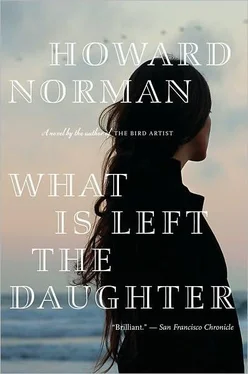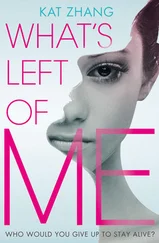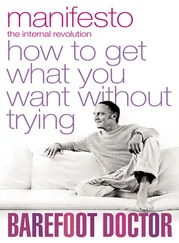There was an excellently built sled hanging on a wall, with a dart board at its center, darts stuck along the slats. At one point, a pretty woman, with dark red hair and wearing an overcoat and leather boots up to her knees, sat next to me and said, "I haven't seen you at Dalhousie. Are you a student?" I said no, I wasn't, and she said, "I'm Mary Conklin, from Dublin. I'm studying art history. Do you play darts? I have five brothers, I was raised on darts, so your pride be warned."
I introduced myself, then we pulled the darts from the sled, stepped back, and she said, "You go first." So I threw a dart toward the board. I didn't have my sea legs, to say the least, not after all that whiskey, so I didn't see my Navy recruiter step into range on his way to the jukebox. My dart struck him high on the arm, almost his shoulder. From his grimace, I expected the worst. "Oh, Lord, that's not the bull's-eye ya had in mind, I bet," Mary Conklin said. However, my recruiter just grinned, yanked the dart out, blood specking up, and said, "See you January fifteen, Hillyer." His mates roared with laughter. He continued on to the jukebox and stood there studying the choices. Mary Conklin said, "That was the shortest game of darts I've ever had," then left with her friends.
Around eleven o'clock — maybe it was later — I paid up and made my way out into the city. Stumbling along, I stopped at the first hotel I came across, the Essex House, on Bishop and Lower Water, where I paid the night clerk and somehow managed the stairs up to my room, 403.
Early the next morning, the kittiwakes and gulls were keening so loud and close, I thought they should've pitched in on the room rate. It was cold and rainy, and I'd left the window open. The bureau doily was soaked through, and on the doily, rain had gathered in a glass ashtray. I could hear the loading cranes at Smith Wharves.
Standing at the sink, splashing water on my face, I suddenly remembered I'd signed up for the RCN, and felt neither good nor bad about it. Not righteous or patriotic or thrilled to the task — what sort of Canadian did that make me? And yet I could hear my aunt's admonition ring in my ears: "Indifference is a sin." If at that moment I'd sat down and written a questionnaire on hotel stationery, it would've included: Did I join up because I wanted to kill Germans, do my bit? Did I join up because only a coward wouldn't? Question after question after question. Despite all the accounts of battle I'd heard on the radio, I had no goddamn idea what combat was like. Why wouldn't a U-boat find my ship? Why wouldn't I be listed among the missing in a newspaper article whose blaring headline was tacked to my uncle's shed wall? I'd like to think that I was of as sane and similar a frame of mind as the next fellow — hundreds of us in Nova Scotia alone — awaiting orders. Both wanting to get on with it— should be getting on with it, no doubt — and scared out of our wits.
To top off the morning, vicious hangover included, it wasn't until I'd walked all the way to a café on Granville Street to get some coffee that I remembered I'd taken a room at the Baptist Spa, paid for in full. Where my suitcase would still be on the bed.
That afternoon, on the bus to Great Village, I was so agitated I changed seats twice. I kept thinking: I should've said to Constance most of the French I knew, Bon voyage. I should've waited longer at the dock. I should've watched her ferry gain the harbor. What had been my hurry? The cemetery could have waited. You can't be late to visit parents in a cemetery, can you? All of this filled me with regret. Aunt Constance always said, when it was too late to help something, "Oh well, water under the bridge," but that was a phrase I no longer much liked.
All that. And Tilda's wedding in two days. (The love of my life's wedding.) And my church suit to get pressed and cleaned. That couldn't be done in Middle Economy. That would have to be in Truro.
1,789 Gramophone Records Splintered
FIRST THING, once I got back to Middle Economy, I drove my church suit to Truro. I hadn't attempted to seek out my uncle, though I knew he was working in the shed; I could hear the radio out there. Anyway, Winterson's Cleaning Establishment was in downtown Truro, on Phillips Street. The owner, a woman named, according to the plaque on the counter, Bettina Winterson, said my suit would take two days. "A prediction's not a promise," I said, being impolite for no good reason. I didn't realize at the time that I'd quoted The Highland Book of Platitudes.
"Okay, then, here's a promise. You'll have your suit tomorrow, by four," she said, "or I'll owe you a free cleaning. Trousers, shirts, anything you please. One-time offer, of course. How's that for a promise?"
Leaving Truro, I felt confident that, clothes-wise at least, I'd be presentable at Tilda's wedding. Driving along Route 2, I put stubborn will to work and tried not to think about much at all. Jettison all worries and concerns and vicissitudes and whatnot — and this seemed to take effect, because soon the inside of my head was the same as the general view of the boat-empty expanse of the Minas Basin, the day's last gull disappearing below the horizon.
I met Tilda at the bakery the next morning. I realized I'd begun to look forward to these meetings, rely on them, all the while realizing they couldn't go on for much longer. Still, there she was, bundled up in double sweaters, a thick scarf, a pair of Hans's trousers rolled up to reveal winter leggings. She looked a touch disheveled, and I said, "Night on the town, eh?" She yawned as if it was painful to her face. She struck me as a flibbertigibbet — all nerves — and at first could not meet my eye. But then she did what she always did when she wanted my full attention, which was to place her hands firmly over mine, press a fingernail into my knuckle and talk.
"We've pushed our wedding date up," she said.
"To when?"
"Actually, Wyatt, we got married at five P.M. yesterday."
"I don't get it. You asked me to give you away."
"I gave myself away."
"In Nova Scotia you need a legal witness, I thought."
"Cornelia volunteered. She was between baking scones and baking cupcakes and was available. In fact, she reminded us we needed wedding bands. I said we didn't have any, so she cut lengths of twine and we used those. I'm hoping Mother will advise on real bands when she gets back. She and I could make a day of it in Halifax. Anyway, as for using twine, Reverend Plumly didn't so much as blink."
"Maybe he suspected it was a German wedding practice."
"Wyatt, you're starting to sound like my father."
"No. Donald's dangerously tilted. Me, I'm just all envy, in case you didn't notice."
"I've noticed a lot of things."
"I still don't understand exactly why you changed your wedding date."
"Here's why. Reverend Plumly had to officiate at a funeral in Advocate on the day we were supposed to get married, and the family — the Dewis family — wants me to mourn at it. It's one of the uncles who died. Everett Dewis. He was on the outs with the whole bunch. The rest of the Dewis family are going to Montreal. So graveside it'll be just me and Reverend Plumly. Hans and I can really use the fee."
"Why didn't you wait till Constance got home?"
"Because Reverend Plumly was leaving to visit his sister in Quebec City right after the funeral. We asked everyone else who came to mind to marry us. No takers. Two justices of the peace — no. Reverend Mann in Glenholme — he's had three men from his congregation killed in the war. He said no directly to Hans. Don't be so thick, Wyatt. Can't you see we felt lucky Reverend Plumly obliged us?"
"So you took who wanted you when. Well, things have a way of working out, don't they?"
Читать дальше












